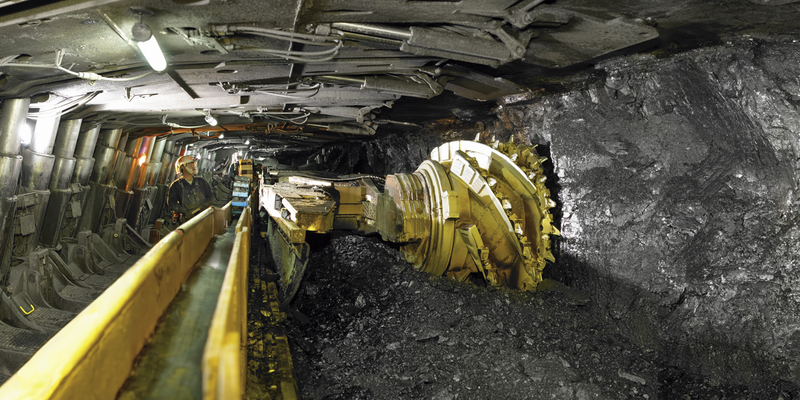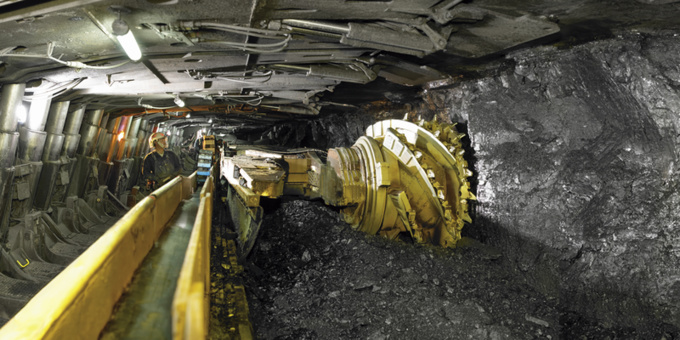British-Australian group Rio Tinto is going sell its stake in a closed coal mine for $1 Australian dollar ($ 0.75). The company has already confirmed the talks on this issue with Australian firm Terracom.
The facility is a mine Blair Atholl, located in Queensland. It is a joint venture of Rio Tinto and two Japanese companies.
Terracom’s representative said that owners receive from Blair Atholl AUD $ 80 million ($ 59.8 million) to work on the reclamation. The company plans to resume production in the fourth quarter at the level of 2 million tons per year.
Rio Tinto closed Blair Atholl in 2012 due to the fall in coal prices. In 2008, a ton of coal was worth $ 180; now, however, the price is just a little more than $ 50. The glut in the market was caused by overproduction and falling demand from China.
Shares of Rio Tinto in the Australian trading on Monday rose by 3.7%. Last week, the company decided to give up its stake in a copper mine located in Papua - New Guinea. Rio Tinto claims that these sales are part of a strategy to get rid of non-core assets, proposed by Rio Tinto’s new head Jean-Sebastien Jacques.
Rio Tinto is one of the largest mining companies in the world. According to its statements, its revenues amounted to $ 34.829 billion in 2015, the profit numbers $ 1.719 billion.
The Blair Atholl’s deal is not the first case of selling Australian coal assets for a nominal amount. Last year, Brazilian company Vale and Japanese corporation Sumitomo sold Ayzek Plains mine, also located in Queensland, for AUD$ 1. The three years before, the enterprise was worth more than $ 600 million, said the FT.
At present, China accounts for half the world's coal consumption, as 70% of the country's electricity is produced in coal-fired thermal power plants.
Naturally, such amounts are leading the country to an environmental disaster. Smog hanging over some Chinese cities forces many their residents put on respirators. According to the Organisation for Economic Co-operation and Development, air pollution leads to death of over a million Chinese citizens each year.
Such catastrophic consequences forced the government to reduce consumption of the raw material. In 2014, it decreased by 2.9% in comparison with the previous year.
Coal is cheap compared with oil and gas, so most mining companies operate with low margins. The only way out for companies in this industry is to use technology for deep processing of coal. This may bring an tremendous increase in profitability.
Tough environmental standards in some cases may not become an obstacle, but a driver for growth and development. The Kyoto Protocol establishes quotas on emissions of methane, present in the mines. Utilization of methane has become a lucrative business for many businesses. They reduce emissions in mines, and then sell their quotas to other companies. Profits from these projects amounts to tens of millions of dollars.
source: ft.com
The facility is a mine Blair Atholl, located in Queensland. It is a joint venture of Rio Tinto and two Japanese companies.
Terracom’s representative said that owners receive from Blair Atholl AUD $ 80 million ($ 59.8 million) to work on the reclamation. The company plans to resume production in the fourth quarter at the level of 2 million tons per year.
Rio Tinto closed Blair Atholl in 2012 due to the fall in coal prices. In 2008, a ton of coal was worth $ 180; now, however, the price is just a little more than $ 50. The glut in the market was caused by overproduction and falling demand from China.
Shares of Rio Tinto in the Australian trading on Monday rose by 3.7%. Last week, the company decided to give up its stake in a copper mine located in Papua - New Guinea. Rio Tinto claims that these sales are part of a strategy to get rid of non-core assets, proposed by Rio Tinto’s new head Jean-Sebastien Jacques.
Rio Tinto is one of the largest mining companies in the world. According to its statements, its revenues amounted to $ 34.829 billion in 2015, the profit numbers $ 1.719 billion.
The Blair Atholl’s deal is not the first case of selling Australian coal assets for a nominal amount. Last year, Brazilian company Vale and Japanese corporation Sumitomo sold Ayzek Plains mine, also located in Queensland, for AUD$ 1. The three years before, the enterprise was worth more than $ 600 million, said the FT.
At present, China accounts for half the world's coal consumption, as 70% of the country's electricity is produced in coal-fired thermal power plants.
Naturally, such amounts are leading the country to an environmental disaster. Smog hanging over some Chinese cities forces many their residents put on respirators. According to the Organisation for Economic Co-operation and Development, air pollution leads to death of over a million Chinese citizens each year.
Such catastrophic consequences forced the government to reduce consumption of the raw material. In 2014, it decreased by 2.9% in comparison with the previous year.
Coal is cheap compared with oil and gas, so most mining companies operate with low margins. The only way out for companies in this industry is to use technology for deep processing of coal. This may bring an tremendous increase in profitability.
Tough environmental standards in some cases may not become an obstacle, but a driver for growth and development. The Kyoto Protocol establishes quotas on emissions of methane, present in the mines. Utilization of methane has become a lucrative business for many businesses. They reduce emissions in mines, and then sell their quotas to other companies. Profits from these projects amounts to tens of millions of dollars.
source: ft.com



















